prg.ai newsletter #34: Czech artificial intelligence gears up for AI days 2023
With the anticipated AI days, big things are coming for the Czech AI community – and you don’t want to miss out on them! In addition to our exciting announcements, this edition also includes a calendar of events curated by prg.ai, shares latest developments on the local AI scene you can take part in, offers new AI resources that caught our eye, and lists open job positions in case you’re on the hunt.
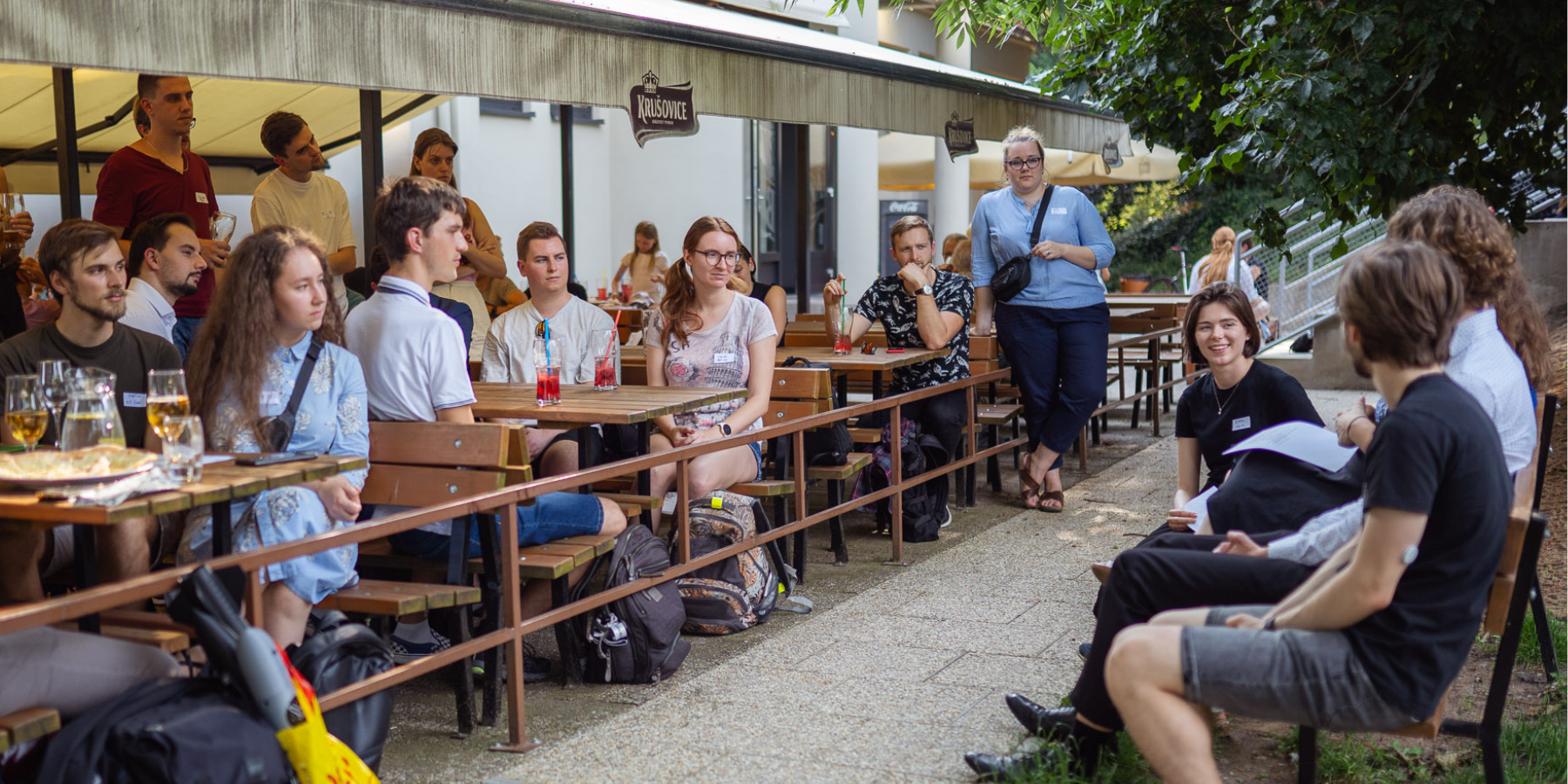
🏡 What’s new at prg.ai
Get out your calendars: we’re bringing AI days 2023 to a city near you!
Building on last year’s successful event organised by Brno.AI, we’re happy to announce that Dny AI 2023 will be going above and beyond. The four-week event will take place in Brno, Plzeň, Ostrava and Prague, and will offer lectures, practical workshops, expert presentations and an interesting extracurricular programme to match. All festivities will focus on recent developments in artificial intelligence and their implications for current events, and a significant part of the program will be devoted to practice, highlighting concrete examples of AI in action across different contexts and fields of human activity.
AI Days will welcome everyone who is interested in AI and its uses. We aim to engage representatives of companies, public institutions, as well as academics, students and the broader public. We’re aware that AI is an important phenomenon which deserves to be addressed in its full complexity: alongside our partners, we’re already looking forward to exploring AI through nonconventional and multidisciplinary perspectives.
In preparation for the event, we held a first meeting of all the regional organisers: we were delighted to host our colleagues from Brno.AI, CzechInvest, MSIC and BIC during our first coordination meeting. Are you interested in joining us and organising an event that will become part of AI Days? Complete this questionnaire to get to work! If you want to support the event, please contact us.

Summing up latest developments regarding AI in the Czech media
The Czech media scene has been flooded with AI-related news in recent months: and we’ve been hard at work to help you cut through the noise. Our new media<AI>monitor is the product of a collaboration with Newton Media, sending a by-weekly rundown of AI-related news directly to your email inbox so that you can always keep abreast of latest developments and discussions. If you already receive the email version of our newsletter, click here to request the media<AI>monitor as well. If you’re signing up for the first time, you can do so at the bottom of our homepage.
Introducing AI in service of public good and governance
Throughout many of our advocacy activities, we are trying to promote the revolutionary potential of artificial intelligence not only as a new technology for businesses, but also as a valuable tool for public service. prg.ai director Lukáš Kačena joined the discussion at the most recent instalment of the Creative Bureaucracy Festival, where he highlighted the use of AI as an important tool which – if used wisely – can make the provision of public services more effective and efficient. Following a similar objective, Lukáš met with a group of chief state secretaries (Czech Republic’s highest-ranking civil servants) to discuss deployment of new AI tools at various levels of the public sector’s structures. And AI innovation was also represented in the Parliament this June: prg.ai director Lukáš Kačena and Pavel Kordík, member of our executive board, joined parliamentarians and policy-makers for a conference named ‘Intelligent Horizons: The future of artificial intelligence’.
Expanding the horizons of AI education
Many students are just now finishing their academic obligations and looking forward to a well-deserved holiday. Yet education never sleeps, and at prg.ai we’re already busy preparing the next edition of our inter-university prg.ai Minor programme and ensuring that the new cohort can hit the ground running come October. To welcome new students to the programme and share some useful tips and tricks, we organised a first informal meeting as well as a quick panel discussion where experienced prg.ai Minor students shared experiences and recommendations with their peers. We were happy to see students’ excitement to engage with all the programme has to offer, be it a rich interdisciplinary academic curriculum, an engaged student community, or an extracurricular slate of practical Industry Talks. Thank you to everyone who attended – we’ll see you in October!
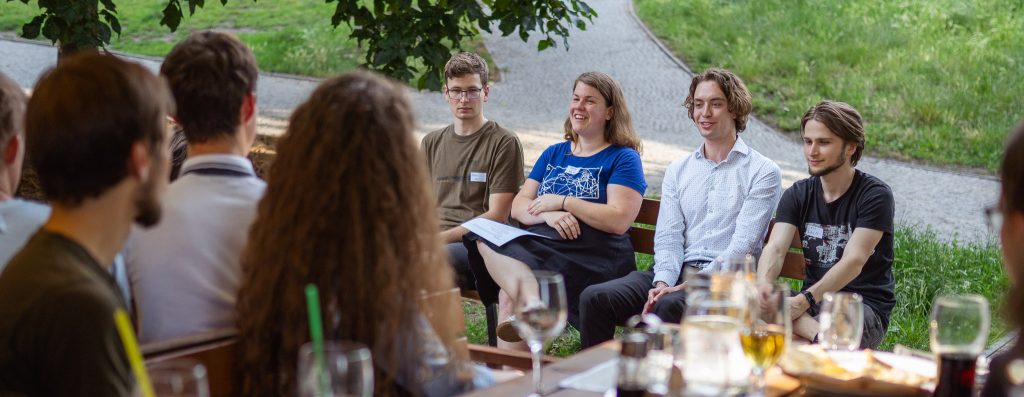
In addition, we were also very pleased to see the promising growth of Elements of AI in the past months: the course is now available as an elective at 10 universities across Czech Republic. At 6 institutions students can already add the course to their academic transcripts, and 4 more universities will integrate it in the coming winter semester. Additionally, 4 Czech organisations already offer EAI as part of their L&D programmes: employees of Valeo, Zentiva, CzechInvest, and the Technology Agency of the Czech Republic can sign up for EAI as part of their professional up-skilling, and we’re spreading the word to many more organisations and institutions. The course is well-suited for curious learners from diverse industries and fields of studies. No matter what your focus is, a knowledge of AI will definitely be to your advantage: sign up for the Czech version of the course here if you haven’t already.
Systematising local AI policies locally, nationally, and internationally
As new AI tools become ever-more widely available, some serious thinking needs to be done to set reasonable rules and best practices for their use. At prg.ai, we have been initiating this important conversation among multiple key stakeholders within the Broader working group which debates optimal guidelines for the use of generative AI systems and large language models in education.
And we’ve also engaged with international AI policy-making: alongside our colleagues at Czech Technical University, we have organised a workshop in Brussels all about the anticipated EU AI Act. During the event, we presented the business as well as academic perspective on the new legislation to policy-makers from the European Parliament and Member States’ permanent representations.
prg.ai wishes you a restful summer!
Lastly, as has been the case in previous years, we will be taking a short summer break from newsletter-writing: the prg.ai newsletter #35 will grace your email inboxes in September. In the meantime, you can keep up with prg.ai on our socials – including our LinkedIn, Twitter, Instagram and Facebook. The prg.ai core team wishes you a lovely summer vacation in case you’re planning any!
🎭 Events we’re excited about
3 – 5 July, International Association of Computing and Philosophy Conference (IACAP) 2023
If you’re around Prague this summer, perk up: an international conference focused on all of the complex issues around digital technology – including the interaction of minds and machines, issues of agency and consciousness, and the tricky epistemology of new technologies. The 2023 edition of the IACAP will introduce you to distinguished researchers and speakers, highlight important research areas between computing and technology, and give you a chance to socialise and explore Prague alongside an international academic community.
6th July, Meetup – DATA mesh
The DATA mesh community unites developers, data experts, and leaders on the local start-up scene. Every first Thursday each month, three engaging speakers present their field of expertise followed by an open after-party, designed to help you connect with fellow data scientists, engineers, and tech professionals. If you’re interested in attending this month’s informal meetup, register your attendance below – or follow the initiative’s Facebook page to keep up to date.
4th – 7th July, ITU’s AI for Good Global Summit
How can AI research and deployment contribute to the UN sustainable development goals? The International Telecommunications Union active as part of the United Nations’ institutional structure gathers a wide line-up of experts, international leaders, researchers and policy-makers working for AI applications for public good. The second wave of online events and workshops is planned for early July: check out the programme at the website below and don’t miss out on an opportunity to learn more about AI for good.
8th – 13th July, International Conference on Automated Planning and Scheduling (ICAPS) 2023
The International Conference on Automated Planning and Scheduling is the premier forum for exchanging news and research results on the theory and applications of intelligent and automated planning and scheduling technology. After three years of virtual events, ICAPS 2023 will be a physical conference again: and we’re very happy to welcome the event in Prague this year! Browse the website below for a full list of all the exciting doctoral consortia, workshops, tutorials and lectures this prestigious conference has to offer.
17th – 21st July, SSPŠ AI Summer School
Getting AI into high schools – and high school curricula – has been one of our strategic priorities for as long as we can remember. Smíchovská střední průmyslová škola a gymnázium has been a reliable partner in this effort, partnering with us on multiple editions of the AI Summer School: and now even preparing one of their own. If you know of an eager teenager who’s excited to learn more about AI and isn’t afraid of some code, definitely explore more information below.
9th Oct – 5th Nov, AI Days 2023
Building on last year’s success, we are scaling up AI Days to cover all of the Czech Republic in cooperation with Brno.AI and CzechInvest. With the help of MSIC and BIC, we will be organising lectures, workshops, presentations, and community get-togethers in Brno, Plzeň, Ostrava, and Prague. Mark your calendars already and follow the event’s LinkedIn to ensure you never miss a beat.
👏 Members’ and partners’ news that makes us proud
Computing power makes up the essential infrastructure of all research in artificial intelligence: how well do you understand how supercomputers work? What kind of calculations and tasks are these machines used for, and what kind of indicators do they have to meet in order to solve difficult calculations? You can learn all about this and more by listening to the new episode of the faculty podcast Ones and Zeros with Ing. Daniel Langr, Ph.D., who works at the Department of Computer Systems at FIT CTU. Give it a listen!
Programming languages are also an important tool in AI scientists’ arsenal: through them, a data scientist is able to perform predictive modelling and create algorithms capable of predicting future developments. Yet it is often not quite so easy: code often introduces errors and so-called data bugs, which can cause incorrect calculations and compromise results. Pierre Donat-Bouillud from the Laboratory of Programming Research at FIT CTU works on developing better error detection methods through the project DataBugs: Finding Bugs in Data Science Codes. For his research in this important field, he has won the Seal of Excellence Award under the Horizon 2020 funding call, recognising the high quality of his research work.
In its capacity as a VISION Project partner, CIIRC CTU hosted the AI Open Day 2023: Trustworthy AI – Humans vs. Algorithms on the premises of RICAIP Testbed for Industry 4.0. You can watch the recording of the Roundtable discussion with AI Experts from the ICT-48 Networks of Excellence and hear the insightful contributions provided by Yannis Kompatsiaris, Roman Barták, Josef Šivic, Holger Hoos, Mario Fritz and Sven Mayer.
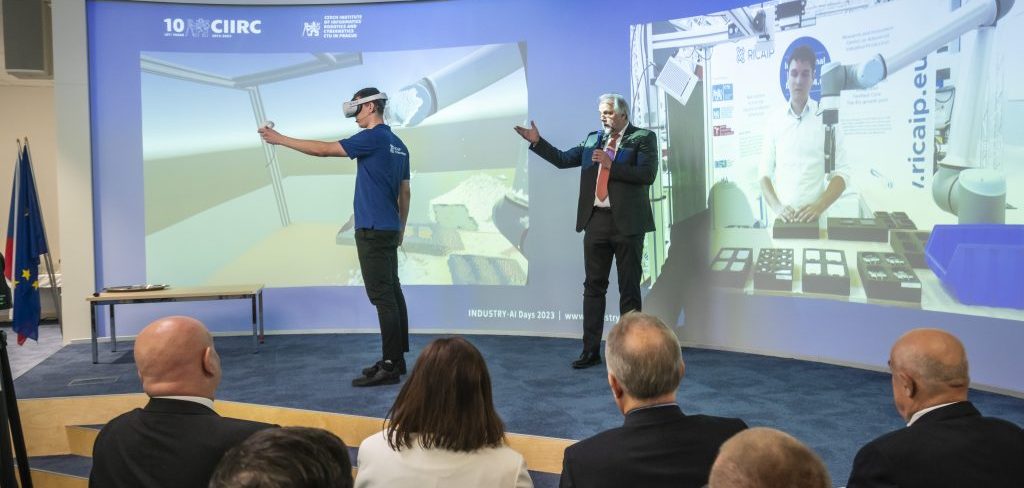
In addition to this star-studded roundtable, CIIRC CTU had an eventful start to their summer. On June 30th, CIIRC CTU and its RICAIP Centre celebrated the 10th anniversary since its founding with a showcase of live robotic demonstrator, highlighting the future of manufacturing with artificial intelligence, virtual reality and remote-controlled robotics. The RICAIP Centre enriched part of the celebration programme with a presentation of distributed modular manufacturing and a live demonstrator of the remote control system connecting testbeds in Prague, Saarbrücken, and Brno. If you’re interested, you can read the underlying scientific publication here.
By the end of May, Czech representatives at the TAILOR Network made their contribution to the event Beyond ChatGPT: How can Europe get in front of the pack on Generative AI Models?, organised by a broad consortium of European projects and Institutions including HumanE-AI-Net, UNESCO’s International Research Centre on Artificial Intelligence (IRCAI), CLAIRE, and other ICT-48 networks. The event culminated in a call for action urging European Union’s institutions as well as the governments of EU member states to prioritise immediate investments and safeguard Europe’s technological sovereignty, protect shared values in the field. “We need a concentrated effort to provide a large-scale technical infrastructure dedicated to developing large European generative AI models corresponding to the current state of the art,” the call for action emphasises.
In cooperation with CUNI’s Research Group for Theology and Contemporary Culture, MFF CUNI and the AI in Context multidisciplinary working group developed an unconventional full-length programme titled “Man, Soul and Artificial Intelligence” at the Church of Our Lady Victorious and The Infant Jesus of Prague. As part of the yearly Night of Churches programme, visitors could see AI-generated posters, try out an application capable of generating an ‘imprint of their soul’, and listen to music composed and produced by AI. In total, the event attracted 2,000 visitors and generated 606 images of the human soul, which you can see in the online gallery. If you are interested in how this soulful application came about or if you would like to generate your own image, you can try out the app yourself.
The Computerworld magazine recognises top personalities and researchers on the broader Czech IT scene, and last year’s spotlight landed on two remarkable researchers active at CUNI: ÚFAL’s Kateřina Lesch and MFF’s Ondřej Bojar. In the online version of the magazine, you can learn more about their research, broader field of interest, as well as approach toward work and career. Give it a read!
On June 4th, Prague once again hosted an annual Robotics Day, organised by CUNI MFF and supported by our industrial member company Valeo. The event featured amateur robotics enthusiasts alongside more advanced creators, and various robotic creations ran, drove, jumped, danced and flew all throughout the Prague Congress Centre. Participants had the chance to showcase their creations across multiple competition categories, ranging from predefined challenges to freestyle robotics showcases. In this article you can read more about the event and explore the story of 9-year-old Otto and his robotic friend which impressed judges in the freestyle category.
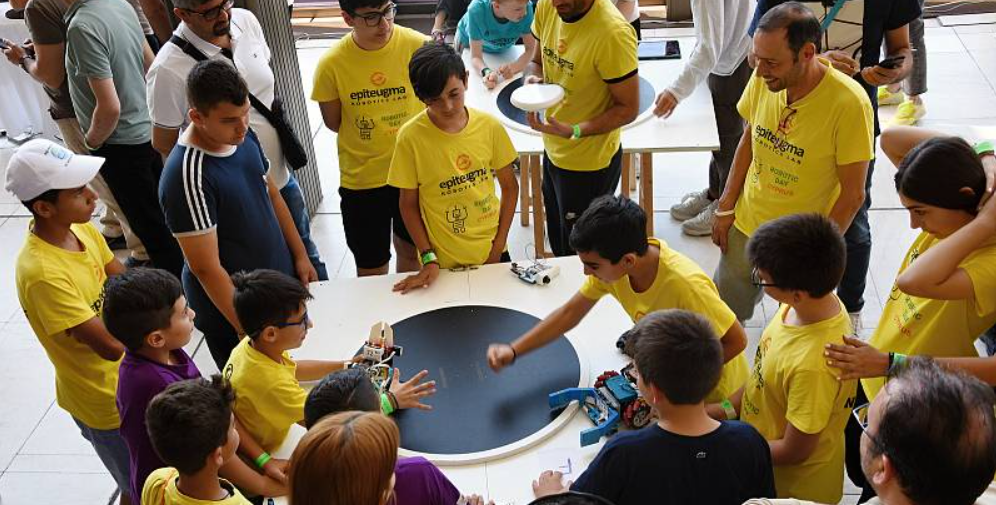
Even despite centuries of dedicated work in mathematics, some impenetrable mysteries still remain: and a new breakthrough is always a cause to celebrate. They had a big cause for celebration at the Department of Applied Mathematics in CUNI’s MFF when Hans Raj Tiwary helped crack a 20-year-old mystery in combinatorial optimization and in return has been awarded the prestigious Gödel Prize for excellent research work in computer science. “It is an unprecedented success,” emphasises Martin Loebl, the head of the Department of Applied Mathematics at CUNI’s MFF. If you’d like to dive deeper into the work, you can read Tiwary’s research paper in the Journal of the ACM.
Chief among all of this month’s great news on the local AI scene, our industrial member Resistant AI announced it has expanded its Series A funding to $27.6 million after securing additional $11 million from Notion Capital. This adds to the existing support from investors including GV, Index Ventures, Credo Ventures, and Seedcamp, which the company first announced little over two years ago. The company is an AI leader in the fintech space: their solution uses a combination of advanced artificial intelligence and machine learning systems to protect financial services from fraud and financial crime. The Resistant AI team serves as a living testament to the quality of Czech expertise in the fields of AI and cyber security, and demonstrates year after year that Prague is a promising hub for successful AI businesses, as recently highlighted by Sifted. You can find more about Resistant AI and their future plans in the investments’ official press release, or read an interview with CEO Martin Rehák on CzechCrunch.
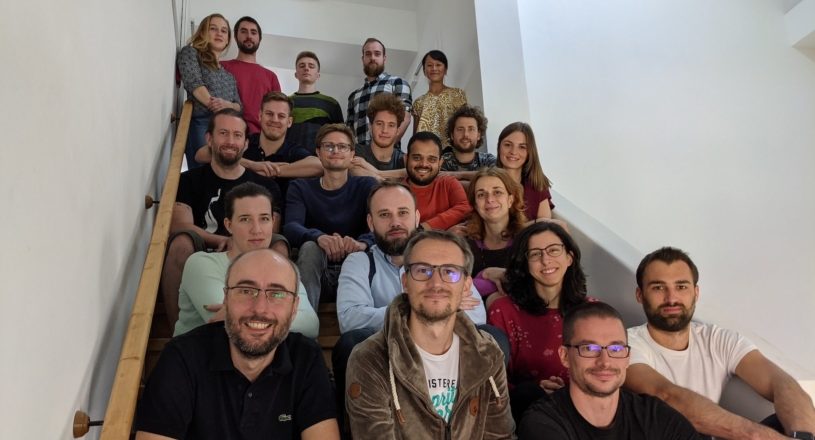
This month, breakthroughs have also been made in the area of AI-assisted diagnostics. Floxgen, a new software tool promises to significantly speed up and improve medical diagnoses: while human experts may need to take weeks to properly analyse genetic data, Floxgen may supply a result within mere hours. In addition, it also makes its results easier to share and transfer, easing collaboration of relevant medical professionals. The new tool is developed by our industrial member DNAi in collaboration with the Institute of Applied Biotechnologies a.s. (IAB), and Faculty of Biomedical Engineering CTU in Prague.
On June 15th, the Technology and Innovation Forum was held at EY’s Prague offices: as part of the event’s very rich program, participants could learn more about AI as a strategic tool for business management or consider emerging technological trends from an organisational perspective. The programme also focused on increasing productivity and competitiveness with the Enterprise architecture, managing groups on complex projects using Wavespace Design Thinking methodology, and automating daily tasks with the WorkEY platform. We’re happy to see that businesses take the challenge of integrating AI technologies seriously!
Direct People, in cooperation with our partner company Zentiva and other cooperators – including TELMA AI and Arbo de Vivo – is developing a new smart medicine dispenser and an AI telephone voicebot capable of checking whether a person has correctly dosed and taken a prescribed medicine and much more. The misuse of medication is a common problem which affects many patients, particularly people with incipient mental illnesses such as Alzheimer’s or dementia. The project is intended to help these vulnerable groups by extending their self-sufficiency and facilitating the work of caregivers, family members, and social workers. In addition, it has the potential to save public health system resources. The project is just beginning – we’ll monitor it closely and keep you updated as it develops.
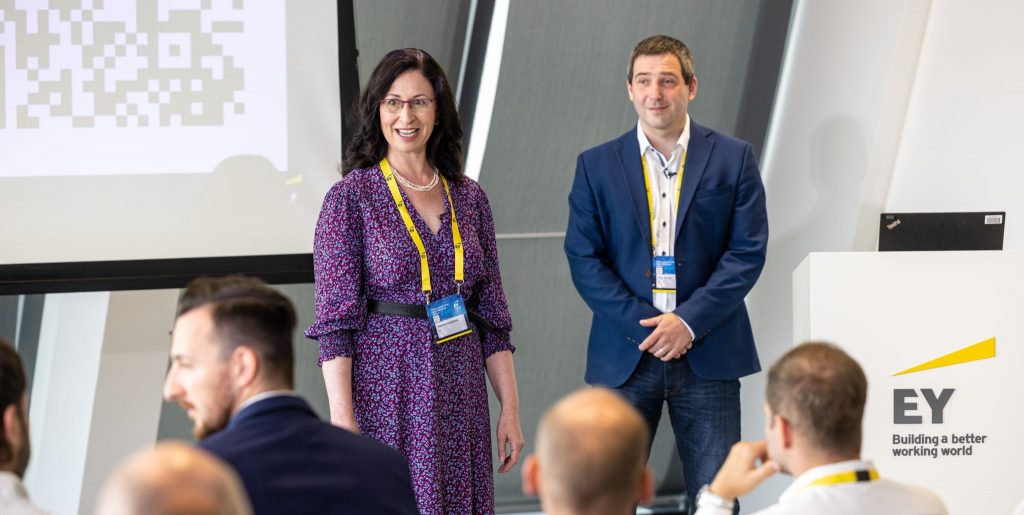
📍 From the local AI scene
Aireen announces new investments and certifications
In addition to DNAi’s Floxgen, new AI-based diagnostics tools are joining the Czech medical system’s arsenal. AI diagnostics tools including Aireen, which has also recently secured a certification for clinical use. The system specialises in diagnosing diabetic retinopathy and eye fundus from ophthalmological scans. The tool helps medical professionals identify symptoms faster and more reliably, increasing the likelihood of successful treatment.
First Czech radio employs an AI moderator
Do you listen to the Expres FM radio station, courtesy of Seznam.cz? You may want to give it a listen: come June, the night programme is moderated by a synthetic voice named Hacsiko. The system employs a synthetic voice and experiments with text generation with the help of OpenAI’s GPT4, which taylors the moderator’s comments according to the broadcasts’ target group, length, and language style. Overall voice synthesis and modelling is provided by the MAMA AI.
Parrot AI secures $11m to transcribe conversations – including courtroom proceedings
Transcribing calls, meetings, conversations and court proceedings is a crucial yet tricky task. The international startup named Parrot AI works on automating it with the help of AI, uniting expertise based in Prague – as well as New York, Atlanta, Miami, Austin, Bratislava and the Philippines. In their recent Series A, the company secured over 200 million Czech crowns from American VC Amplify Partners alongside XYZ Venture Capital and angel investors. “The market is relatively invisible, but big changes await,” notes co-founder Tomáš Ščavnický.
📰 Stuff that interests us
- Rishi Sunak wants the UK to be a key player in global AI regulation (article) & MEPs ready to negotiate first-ever rules for safe and transparent AI: EU AI Act ready for Council negotiation (press release).
- Artificial Artificial Artificial Intelligence: Crowd Workers Widely Use Large Language Models for Text Production Tasks (research article).
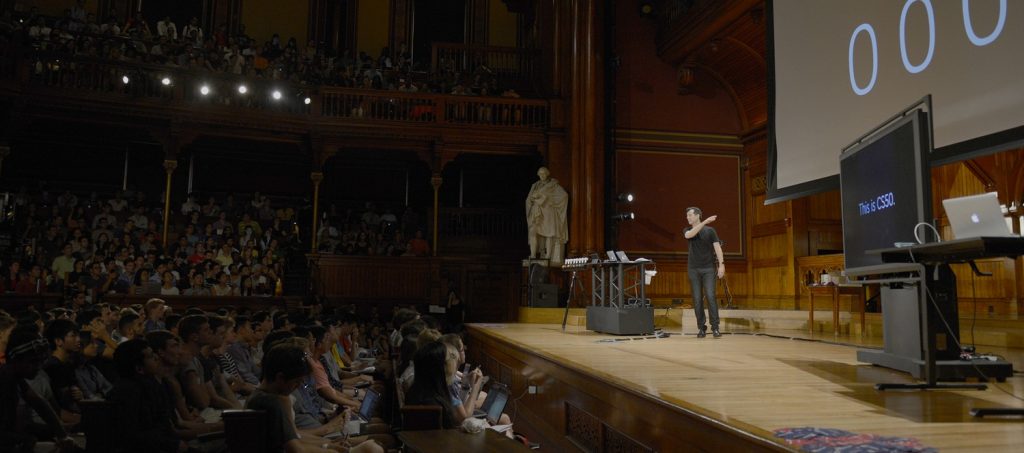
- New programme attracts foreign researchers to work in Moraskoslevský kraj (article, in Czech).
- CS50 will integrate AI into course instruction (article).
- Sam Altman, CEO of OpenAI, kicks off EU charm offensive: “we want a headquarters in Europe” (article)
🧩 AI/ML sources we recommend
DeepLearning.AI Short Courses
To sharpen your competences this summer and explore hands-on work with latest large language and diffusion models, consider trying out one of DeepLearning.AI’s new offer of short online courses. You can explore ChatGPT Prompt Engineering for Developers, learn LangChain for LLM Application Development, try Building Systems with ChatGPT API, or get to the bottom of How Diffusion Models Work. After registration, you can enrol into all short courses for free and follow them entirely online at your own pace.
Regulating ChatGPT: From Trustworthy to Sustainable Technology (Philipp Hacker)
With the rapid rise of various chatbots basen on LLMs, various challenges emerge – and leading researchers are on the case. Most recently, Prof Dr Philipp Hacker, LLM held a lecture at the University of Oxford where he discussed relevant legal questions associated with the proliferation of ChatGPT specifically, including model regulation, content regulation, and data privacy. You can watch a full recording of the lecture or review the underlying research paper authored by Philipp Hacker, Andreas Engel and Marco Mauer.
Amazon’s Machine Learning University
Originating from Amazon’s own machine learning scientists, the Machine Learning University platform provides ‘self-service’ machine learning training and allows learners to tailor their own learning paths and objectives. The curriculum is meant to kick-start your ML journey with three three-day courses focused on Natural Language Processing, Tabular Data, and Computer Vision, and let you continue toward more advanced courses as you see fit. A great resource if you’re looking to improve your technical competencies this summer!
📢 Community calls
Have your say about the National Artificial Intelligence Strategy
With the support of the Aspen Institute CEE, we have organised two expert meetings to discuss the current National Artificial Intelligence Strategy of the Czech Republic. The meetings aimed to put the strategy in a broader context of business and academia, and outlined possible priorities for the future. And we’re not alone in this effort: the Ministry of Industry and Trade is currently working on updating the National Artificial Intelligence Strategy as well. Policy-makers are launching a public consultation with the aim to involve the public in the process and properly reflect the technology’s opportunities and challenges. If you would like to participate in the consultation, you can read more details on the website and sign up to have your say.
Hack away at AI safety benchmarks with Effective Altruism
Between June 30th and July 2nd, the Czech branch of the Effective Altruism movement is organising a hackathon focused on AI safety benchmarks, joining a global effort of the Alignment Jam benchmark challenge. If you’re eager to contribute toward the growing field of AI safety, this event should definitely be on your radar. Even if you happened to miss the registration deadline, consider joining the LLM Evaluations Working Group which will spend the summer working with OpenAI on developing better evaluation mechanisms for large language systems.
💼 Otevřené pracovní pozice
AI Center FEE CTU
Datamole
Senior Administrator with DevOps ambitions
Resistant AI
Various positions (including ML and Data Science)
Recombee
Rossum AI
Various positions (including ML and Data Science)
DataSentics
Various positions (including ML and Data Science)

Barbora Bromová
Next up from prg.ai

Typical Prague AI firm is young, self-sufficient, and export oriented, shows our new comprehensive study
130 companies, 11 interviews, 9 business topics. Explore all that and more in the unique study authored by prg.ai, which contains an overview of last year's most notable events on the local AI scene or articles on the future of AI or gender equality in research.
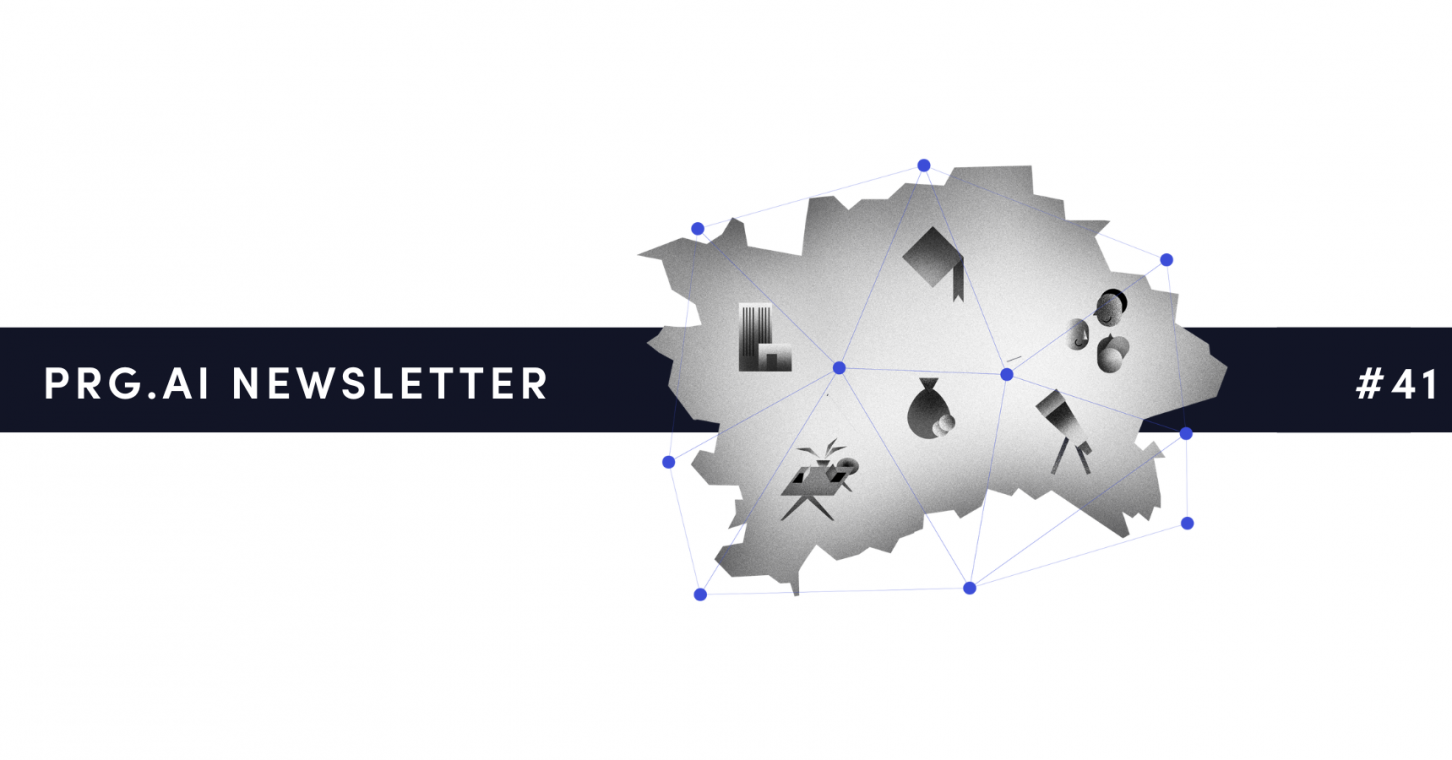
prg.ai newsletter #41
The first spring edition of our newsletter! Get the latest prg.ai updates, exciting news from the Prague AI scene, a curated list of interesting events, open positions, and much more. Stay in the loop!
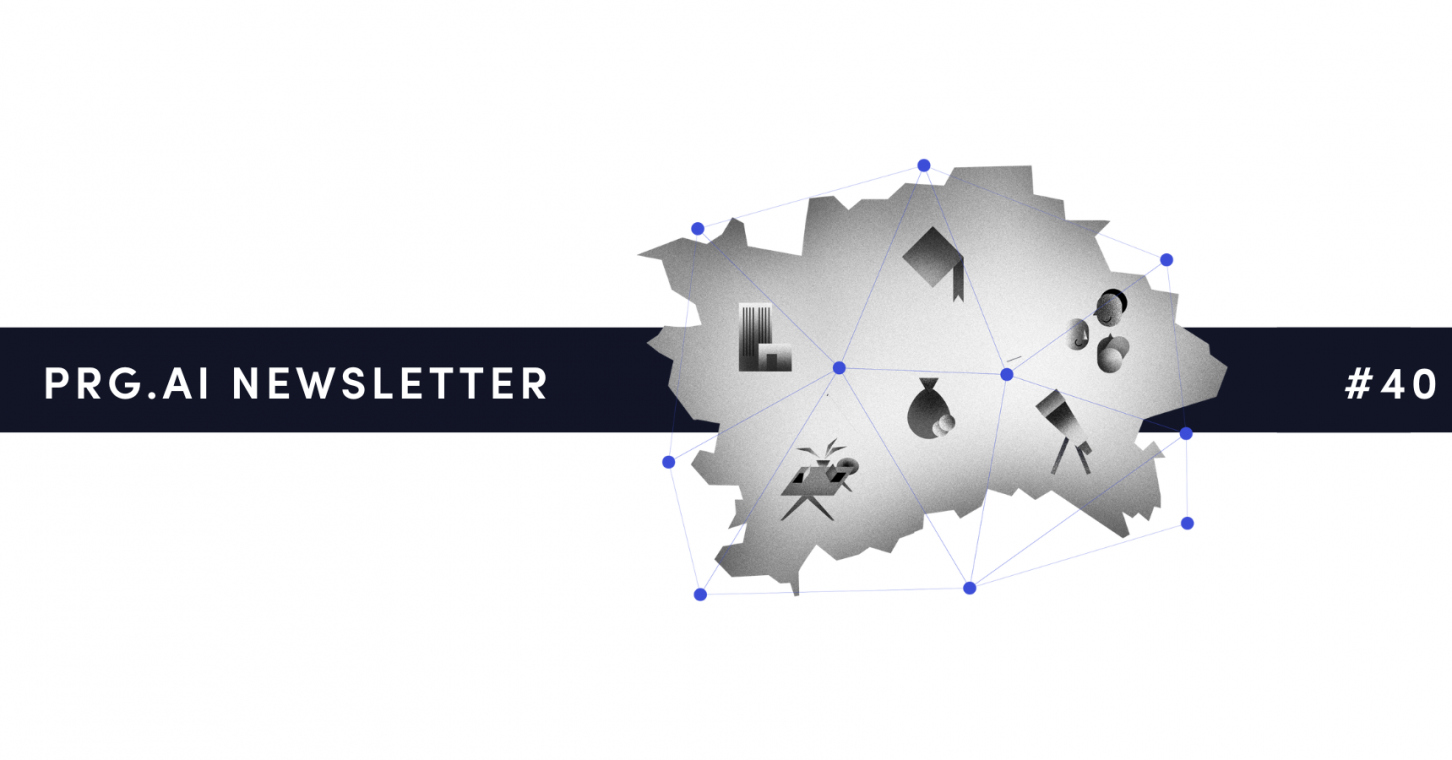
prg.ai newsletter #40
The fortieth milestone issue of the prg․ai newsletter is packed with news and intriguing facts not only from the Prague AI scene. Keep reading so you don't miss out on anything!
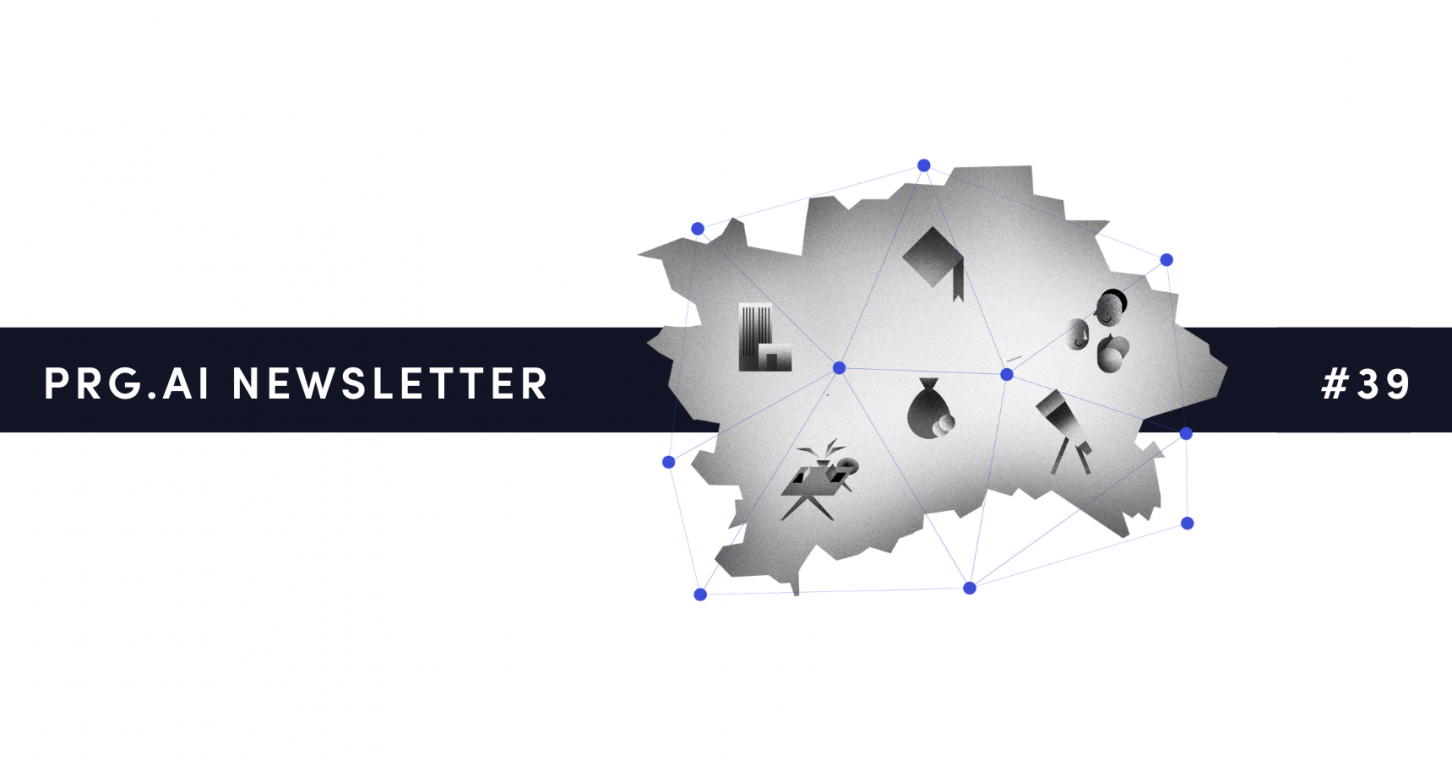
prg.ai newsletter #39
What did the first month of 2024 bring, and what can you look forward to in February? Find out in the next prg.ai newsletter. Check out what's new on the artificial intelligence scene (not only) in Prague.

